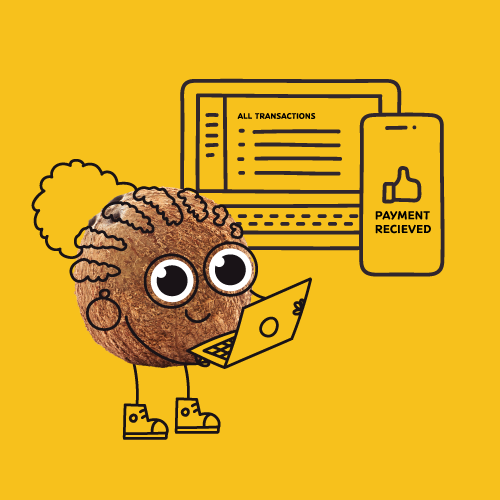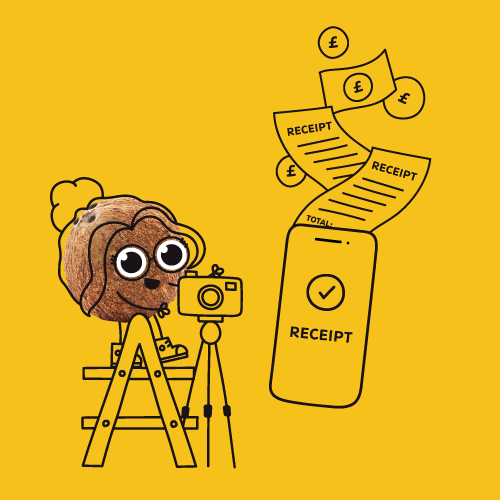Growing your accounting practice normally means winning more clients, but for practitioners working with manual processes, this can lead to hours of chasing, data entry, and education. This is especially tough for practices working with sole traders and unincorporated landlords, who are high-volume, low-margin clients. But what if there was a better way?
.png)
Modern accounting tools and workflows are designed to be more intuitive and accessible, including for your clients themselves. By changing some of the ways you work and collaborate with your clients, you can eliminate up to 80% of your work involved in keeping them compliant. And with the right processes, your clients won’t even feel like they’re doing more. In fact, they might even think they’re getting more value from your service. Here’s how.
Perfect the basics
Training every client on how to manage their books can be a serious drain on your time and resources. However, the alternative—handling 100% of the bookkeeping and chasing clients for receipts and paperwork at the end of each year—can be a lot worse.
To make the process more scalable, consider making a bank of online training materials resources that clients can refer to, covering the bookkeeping basics that you need them to do each month, guidance on how to interact with you and how to handle basic queries.
While this may take some initial time investment, the benefits are huge. If your clients can do their data entry in a consistent way then it will not only save you time at the end of the year, but also time spent chasing them throughout the financial period to provide documents and data.
You can make this even easier by encouraging them to use a digital tool to scan receipts and manage their invoices online, so you don’t have to spend time chasing bags full of paper at the end of the year.
This requires choosing the right tools. You don’t want to spend your time troubleshooting tech issues and training your clients on how to use software. Prioritise tools that are easy for them to use, thus minimising the number of questions you have to field, and increasing your margins. Accounting tools specifically built for sole traders and landlords are simpler to use than traditional cloud accounting software, as well as being cheaper, providing only the tools your clients actually need.
Create clarity and visibility
For sole traders and landlords alike, one of the key value points of having an accountant is helping them make sense of their numbers. However, this can lead to answering the same routine questions over and over, especially when it comes to finding the information that matters in among their other business information.
This can be especially tough for sole traders, since 79% of them use a personal account for some or all of their business transactions, leaving them struggling to separate their transactions.
By making it easier for clients to unmuddle the two, you can instantly cut down on queries. The first option is to help them set up a new business account for their work or property—or, even simpler, provide them with a tool that makes it easy to separate transactions for them, like Coconut.
Once they have the numbers they need in the right place, you can then show them how to find the topline figures they need to know. By helping them find the basic financial information they need, they can feel more in control of their business and also handle basic queries themselves. Accounting and tax software such as Coconut can even make it easy for them to see how much they need to save for tax.
Build a strong relationship
As well as the processes and tools you provide, you can also shape client behaviour through the relationship you build with them. Clients are more motivated when they feel that their effort has a tangible benefit for their business, as well as being engaged with your service.
To that end, build in regular checkups to check on their progress and solve any challenges that arise, well in advance of Self Assessment season. This can help you catch problems before they become too big or stressful to handle, as well as positioning you as a close partner who is part of their day-to-day business life.
Counter-intuitively, part of this is also helping them understand when is the right time to reach out to you. Accountants can’t add value on simple data input for clients, but there are areas where they will really benefit from your expertise, for example when thinking about financing or expanding service lines.
Ensuring your clients know how to get the most value out of you can help them come to you for the right reasons, emphasising the most important parts of your service and maximising retention.
Match your service to their needs
Managing sole trader and landlord clients doesn’t need to be an uphill battle. By empowering them with the right knowledge, tools, and processes you can help them get more value and control from your service while also saving your time and margins.
The core principle is matching resources to their unique needs, and that includes the software you use. Coconut is accounting and tax software that’s built specifically for sole traders, landlords and their accountants. There are no confusing or complex features, no excessive costs, and no intimidating interfaces. Clients can use an intuitive mobile-first app, while accountants and bookkeepers manage the things that matter from a straightforward web portal.
To find out how easy it can be, sign up for a Coconut Partner Account for free. You can explore the Accountant Portal at your leisure and see for yourself just how much time Coconut will save working with your smallest clients.










